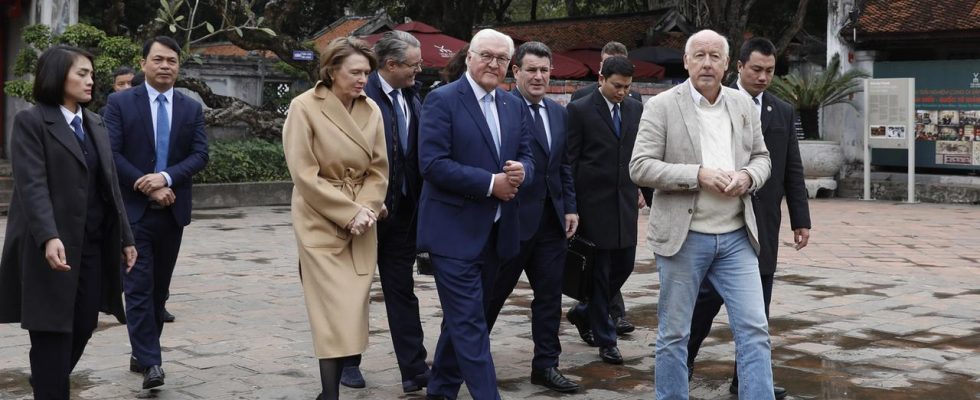In the fight against the shortage of skilled workers, the federal government wants to recruit people from Vietnam. In Hanoi, Federal Labor Minister Heil can count on the support of Federal President Steinmeier.
The federal government has made an attempt to recruit skilled workers from Vietnam. At the start of a state visit by Federal President Frank-Walter Steinmeier to the Southeast Asian country, the labor ministers of both countries signed a corresponding agreement.
“We in Germany have a great need for skilled workers. And we are pleased that Vietnam is ready for this cooperation with Germany,” said Steinmeier after a conversation with President Vo Van Thuong in the capital Hanoi. “I believe this is the beginning of a really fruitful collaboration,” said Federal Labor Minister Hubertus Heil.
Federal Labor Minister Hubertus Heil and his Vietnamese counterpart Dao Ngoc Dung signed a joint declaration of intent on labor migration.
Heil: Need to eliminate bureaucratic hurdles
It’s about “removing bureaucratic hurdles and also ensuring that the people who come to us in Germany are treated fairly,” said Heil. According to the SPD politician, the legal framework has already been created with the Skilled Immigration Act, now it’s about practice. To this end, more targeted information should be provided in Vietnam about the legal situation and options in Germany.
At the beginning of their visit to the Goethe Institute in Hanoi, Steinmeier and Heil found out about language training for young Vietnamese people who have already completed specialist training and want to come to Germany soon.
Steinmeier for more economic Cooperation
Steinmeier arrived in Vietnam in the morning. He is accompanied by his wife Elke Büdenbender and a business delegation. In Hanoi, the Federal President made clear Germany’s interest in more economic cooperation. The bilateral trade volume is currently around 18 billion euros. For Vietnam, Germany is the most important trading partner in Europe and the fourth most important investor. “This does not by any means exhaust the potential in the economic relations between our two countries.”
President Thuong asked Steinmeier for support for the Bundestag’s ratification of the investment protection agreement between his country and the EU.
It is the fifth trip to Asia that the Federal President has made since the start of the war in Ukraine almost exactly two years ago. After Russia’s attack on Ukraine, Germany is repositioning itself politically and economically. Relations with China, including their economic dependencies, are now viewed much more critically than they were a few years ago – with the result that more cooperation with China’s neighbors is coming into focus.
One of the last communist States
In terms of area, Vietnam is almost as big as Germany, but with a good 98 million inhabitants, it has 15 million more people. The country is one of the last communist states in the world, but opened up economically a long time ago.
Nevertheless, Vietnam is still a one-party system. The Communist Party claims leadership of the state and society for itself. Other parties are not permitted. Human rights organizations see freedom of expression and freedom of the press as severely restricted. The right to freedom of association is undermined, arbitrary arrests and torture and ill-treatment of detainees occur. On the Press freedom ranking by Reporters Without Borders Vietnam is ranked 178th out of 180.
According to the Federal Statistical Office, around 207,000 people with a Vietnamese migration background lived in Germany in 2022. The Federal Republic of Germany and Vietnam have been linked in a “strategic partnership” since 2011, but this partnership had, however, fallen somewhat dormant. In November 2022, Chancellor Olaf Scholz was in Hanoi to revive it.
Evi Seibert, ARD Berlin, currently Hanoi, tagesschau, January 23, 2024 5:41 p.m

